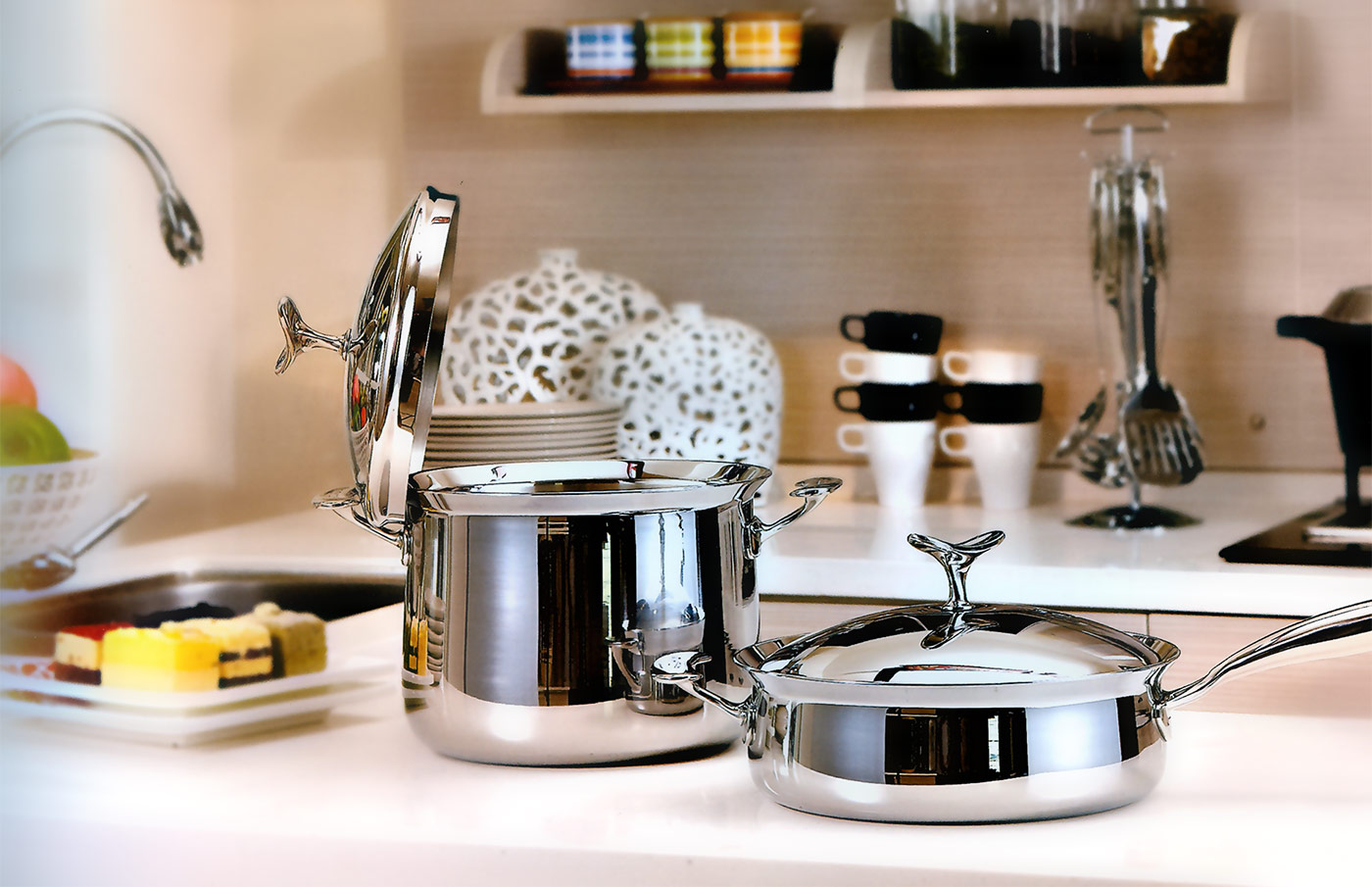Care and maintenance
Porcelain dishware should best be soaked in a basin, lined with soft towels. Add warm water and a mild detergent. Some experts recommend using baby shampoo; it’s gentle and doesn’t leave a film. Rinse the porcelain with ¼ cup of a mixture of white vinegar and water, and leave it to dry. Keep it away from abrasive scouring powder and steel wool!
Porcelain settings can go in the dishwasher (do not cram) as long as there are no gold decorations in the pattern. Use a rinsing agent in the dishwasher to improve the result. Flatware made of soft steel, especially knives, may leave metal streaks on a polished surface that cannot be removed in a normal cleaning process (but by rubbing it gently with metal polish).
To protect the glazing, avoid heavy rubbing when, for example, stacking plates.
———————————————————————————————
Wash, rinse and dry your knives before using them for the first time
Don’t let remains of food dry onto the blade, because the knife then becomes more difficult to clean. We suggest you make a habit of cleaning it right away.
Simply lay the blade on a flat surface, carefully wipe one side with a wet cloth, then clean the other. Immediately dry it, from the back of the knife to the edge.
You should, however, sanitize and use soap in lukewarm water to clean the knife after it was used to cut poultry, meat or fish.
Knives with synthetic or stainless steel handles are dishwasher-safe (even those with riveted handles). You take best care of your knives, however, by cleaning them by hand (high heat and detergents are not good for the handle, it will loosen over time)! The best and easiest way is to clean them directly after use under lukewarm running water – add a drop of dishwasher detergent if necessary – and dry thoroughly. If you prefer to put the knives in the dishwasher, please make sure that the blades do not touch anything (hitting other flatware or pots and pans will nick the edge) and we recommend the eco-programme running at 55 °C.
Wash sharp knives separately! Be conscious that you are washing sharp items. Never just throw a knife into the sink, it is best to clean them under running water and dry them directly after use.
———————————————————————————————
Keep your cutlery bright and shiny
Wash your stainless steel flatware by hand during the first weeks of use. Later on it can be put in the dishwasher, but if you want your flatware to stay shiny, we recommend to wash it by hand.
Directly remove stains of food after use.
For hand wash:
– use warm water, a mild soap and a soft sponge
– don’t let is soak too long
– dry immediately
– avoid concentrated acidic detergents
If you decide to clean your cutlery in the dishwasher:
– always pre-rinse
– use a mild detergent in moderate amounts
– place the flatware in the flatware basket with the handles facing down
– do not cram the flatware in the dishwasher
– use the delicate or economic cycle
– when the program is finished, immediately take the flatware out of the dishwasher. Wipe the flatware with a soft towel.
———————————————————————————————
Glassware : we’ll see you through
Rinse the glasses as soon as possible after use
We recommend cleaning your glasses by hand as the high heat and abrasive detergents in the dishwasher may damage the crystal. If you do put your glasses in the dishwasher, make sure you use a very gentle cycle and a mild detergent.
When washing your glasses by hand, it is a good idea to put a rubber mat, a thick dish towel or a washcloth at the bottom of the sink in order to avoid breakage. Always use warm soapy water and a mild detergent (and a soft sponge or brush). When you add a punch of salt, the glassware regains its beautiful shine.
To remove stains, just swirl a handful of uncooked rice in warm water with lemon juice or vinegar. This is especially handy for hard-to-reach spots like in vases.
For problematic stains, use a denture cleaning tablet, but monitor the process. Never soak your glassware!
To remove small spots, try applying vinegar on a cloth.
dry your glassware by hand (immediately after washing it to prevent spotting).
When storing your glassware, make sure that you have ample room for each glass and never store glasses on the rim

